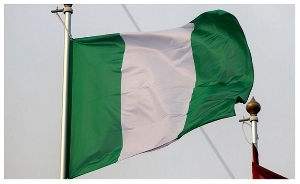Accra, Oct. 17, GNA- Cuba on Friday said it has lost more than 72 billion dollars for four decades that the US put financial, commercial and economic embargo on her.
She said there were numerous examples of the difficulties it was facing in education and the purchase of some drugs for children and that since the 1990s her purchasing power of educational materials has fallen by 25 to 30 per cent because she has to acquire those materials from remote markets and sometimes at higher prices from Asian countries. Professor Lucas Domingo Hernandez Polledo, Cuban Ambassador to Ghana briefing the press on the consequences of the US embargo, drew the attention of the UN that it was human rights violation for the continued isolation of Cuba.
The embargo is a massive, flagrant and systematic violation of the Cuban people's human rights, particularly of the rights to health and food.
Prof Polledo said Cuba intended to present to the 58th Session of the General Assembly of the UN the "Necessity of ending the Economic, Commercial and Financial Embargo imposed by the United States against Cuba"
Agriculture, a sector whose development is key to food production to raise nutritional standards for the Cuban people, suffered losses due to the US embargo which when calculated cost the nation 108.5 million dollars, a year.
Prof Polledo said it was Cuba's determination to remain as sovereign state that was why the US was calling her names and accusing her of terrorism and abuse of human rights, adding; "all that we do is to have doctors dressing in white treating patients at hospitals in almost all parts of the world and yet it is not surprising that those are the people being called terrorists."
The Ambassador reminded the world that Cuba was only reaffirming among other principles enshrined in the Charter of the United Nations, the sovereign equality of states, non-intervention and non-interference in their internal affairs and freedom of international trade and navigation, which is also found in many international legal instruments.
General News of Friday, 17 October 2003
Source: GNA
Cuba calls for the end of US embargo
Entertainment

Blackmail Saga: Court remands Showboy, case adjourned
Opinions









